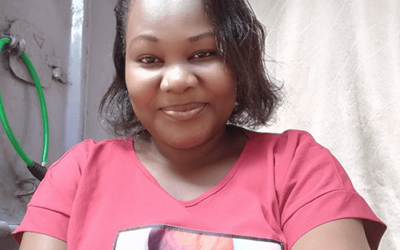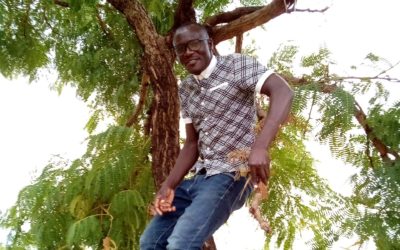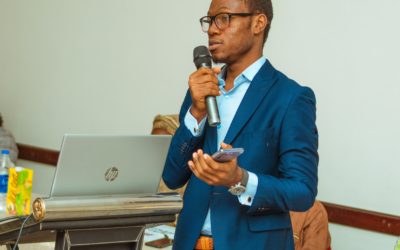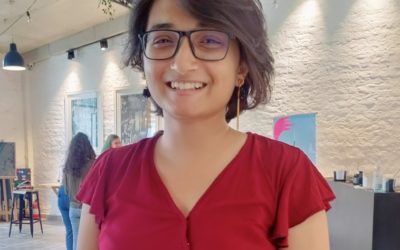To Rt. Honourable Prime Minister of Nepal
H.E. Mr. Sher Bahadur Deuba
RE: Call for Action in Transforming Education in Nepal
RE: Call for Action in Transforming Education in Nepal.
Namaste!
I am Sushmina Baidya. I have been actively working with children and young people in my community. I am also a member of the Transforming Education Summit Action Group which is supported by the United Nations Foundation under the Unlock the Future Coalition.
I was born and raised in Kathmandu in a family of five. My parents gave birth to three daughters in a community where patriarchy saliently paces its way. In a way, I always felt our family was a silent rebel. I am not saying this just because we were a dominantly female family. Gender inequality was never about fighting between sexes or which gender outnumbered the rest. It is the fight against patriarchal constructs. The silent screams of people whose existence were questioned – and life choices denied for who they are and who they wanted to become. My elder sister and her husband chose to stay at our home after marriage, withstanding extreme social criticism. My other elder sister opted to adopt a child with her husband in a society where birth of your own offspring is regarded as the symbol of successful marriage. This is why I always believed my family was a silent rebel.
Somehow, the rebellion characteristics grew in me when I was 15 years old and studying in grade 10. My school introduced a system of reshuffling students into sections, as per the internal grades, in the last leg of the academic year, in order to “produce” academically excelling students. Not adhering to the new system, which we felt was discriminatory, a silent protest was organized. Neither did we allow students to relocate nor the teachers to continue the classes. After three days, the administration called a meeting and decided to lift the system.
When the administration called us for a meeting, I remember finding myself in the biggest auditorium that my school had. On the podium stood our former Program Coordinator who seemed vividly upset. For the first time, the entire school resisted. The protest was a mere symbol of resistance. What it represented was the resistance towards the existing hegemonic relation between students and teachers – the pedagogical practice of authoritative teaching. At that moment, I realized that there is a need to dismantle the entire education system, not just in Nepal but globally.
I urge your excellency to take the following implementation into consideration.
Pedagogical teachers’ training
To begin with, we need to look at the existing learning practices. This does not mean the way teachers ‘teach’ the students. When we think about pedagogical practices in teaching, we tend to automatically think about the responsibility of a teacher in class. Pedagogical practices in teaching is not only a responsibility of shifting teacher’s practices. It is the interconnection among engaged pedagogical practices, body and mind connection, and conversation on lived experiences and passion. Let me give you an example – I took a class on ‘Researching children and childhood’ and one of the modules was Autobiography. This was, by far, the most memorable class I have taken. We started the class by sharing our own recollection of life stories where our childhood was shaped by gender, class, race, ethnicity or any other social constructs. This class was not solely driven by the lecturer. Instead, the lecturer facilitated while the students directed the class. The lived experiences helped us unpack the subjectivity of the discourse.
Revision of curriculum
While we reevaluate the pedagogical practices in education, we have to give a hard look at the curriculum. Young people across the globe are demanding a radical change in the education system, specifically the curriculum. The constant shift in the labor market, future skills of work, and the change in the social and cultural capital acquisition means a revision is needed in the curriculum. There is a need to change the curriculum that caters to the skills for the future of work.
Prioritize community based learning
Illich (2007) in his book Deschooling Society discusses how education, as a right, is subsumed as a value of personhood. One of the reasons is the uniformity of the education system – which I prefer to term as colonial education. Colonial education disregards the community based value systems to integrate in the education system. For instance, vernacular education is not considered as formal unless it is offered by a formal institution. Learning by doing is not accredited as formal education unless backed up by an institution with students wearing uniforms. This suggests the risk of uniformity in curriculum that fails to engage the community in the learning process. Therefore, value-based learning in curriculum needs to be integrated if we are to revise the curriculum.
Changing the education system seems ambitious at the moment but welcoming democratizing practices in classes using engaged pedagogy, revising curriculum, and integrating community value-based curriculum in education can be realized. As we move towards organizing the pre-summit on Transforming Education (on June 28-30) and the Summit itself (in September), I am hopeful it will create a space to initiate conversations and make commitments for transformation. I visualize the Summit as a space where we can dig deeper into the conversation of understanding the purpose of education, and to take actions to co-create an education system that is more inclusive.
I shall leave with a beautiful piece written by Bell Hooks in her book Teaching to Transgress.
The academy is not a paradise. But learning is a place where paradise can
be created. The classroom, with all its limitations, remains a location of
possibility. In that field of possibility we have the opportunity to labor for
freedom, to demand of ourselves and our comrades, an openness of mind
and heart that allows us to face the reality even as we collectively imagine
ways beyond boundaries, to transgress. This is education as the practice
of freedom.
I hope this piece of her artwork will shed light on the conversation and commitments the Summit will achieve and inspire the government of Nepal to submit its National Statement of Commitment to the Summit before its deadline in August. We need to collectively work on creating the urgency of reimagining education – transforming how the education system fully integrates in the life of a person.
I hope we ponder upon the purpose of education and seek answers to openly welcome radical changes to education – one that embraces diversity, inclusivity, passion and vulnerability.
I hope to see you all as we wander together in this quest of Transforming Education.
Thank you for your time and consideration.
Sincerely,
Sushmina Baidya
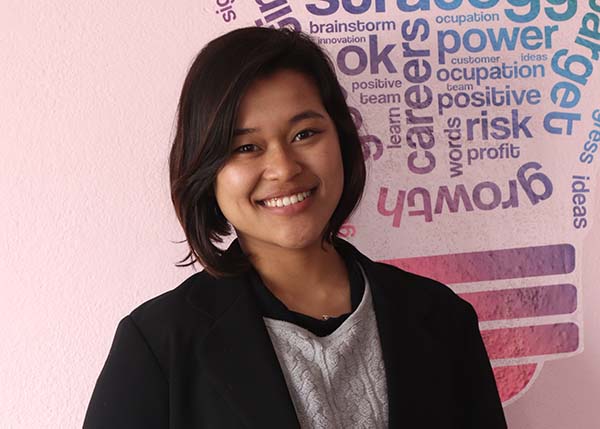
Sushmina Baidya
